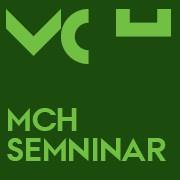
Advertisement
Research on infant care and development in nonhuman primates can inform and expand our understanding of parenting and infancy in humans by providing insights into our evolved biological and social adaptations. In many primates, infant feeding and care is not limited to the primary relationship between the infant and its mother, but also includes other caregivers. In the first part of this presentation, I will show how novel methods in primatology help reveal the differences and similarities between patterns of infant feeding and lactation in humans and other primates, to highlight key features of infant care and development that make humans unique, and that would have evolved since our split from other apes. I will synthesize the comparative primate research to show how human infancy evolved within a system of “cooperative breeding” that includes both social and nutritional relationships of infants with their mothers and others. In the second part of the presentation, I will present preliminary results and ideas on a new project on primate play, particularly focusing on object play and manipulation, tool use and exploration by wild immature chimpanzees. I aim to show that infant and juvenile chimpanzees use objects in their environment in more flexible and explorative ways than adults. These results provide interesting insights to understanding the evolutionary origins and bio-social foundations of cultural innovation in hominins.Bio:
Iulia Bădescu is a primatologist and an Associate Professor in the Department of Anthropology at the Université de Montréal. She studies the evolution of lactation, maternal investment, and infant care and development in human and nonhuman primates. Her research focuses on several wild primate species, notably chimpanzees in Uganda, colobus in Ghana, and baboons in Kenya.
Advertisement
Event Venue & Nearby Stays
Moesgaard 4206-129, Mosegårdsvej 113, 5000 Odense C, Danmark,Odense, Denmark












